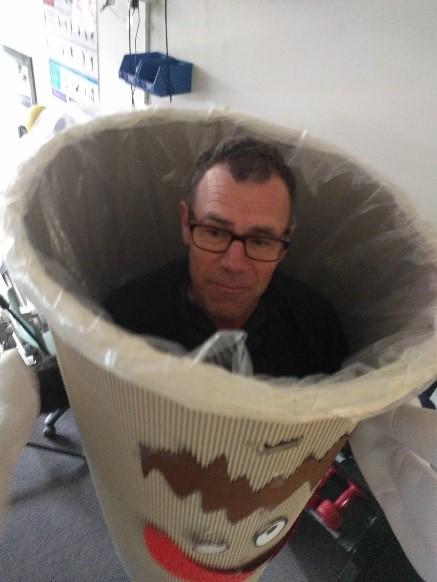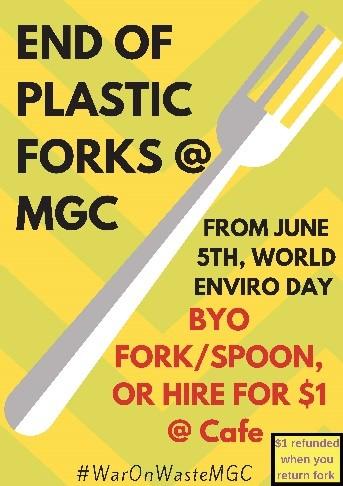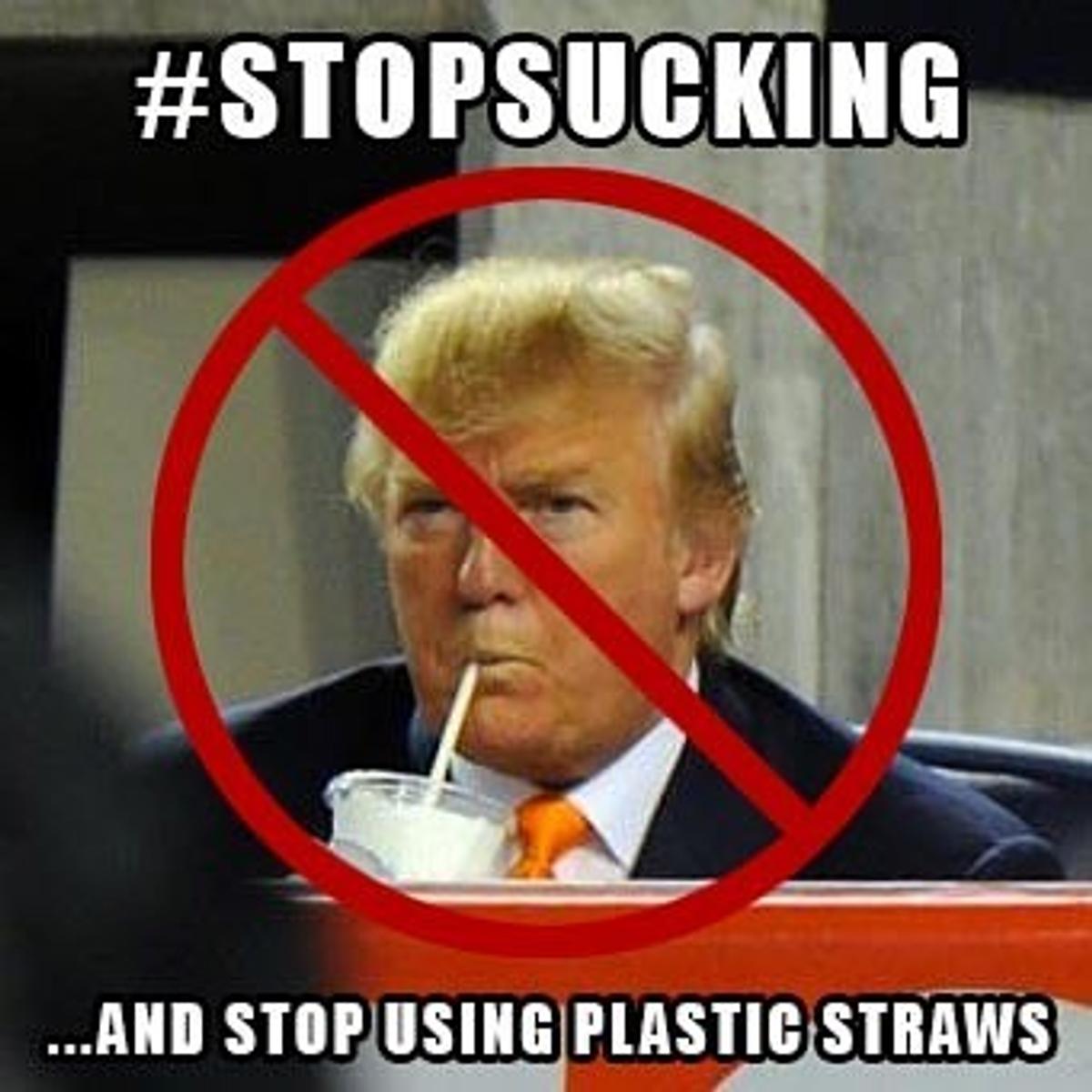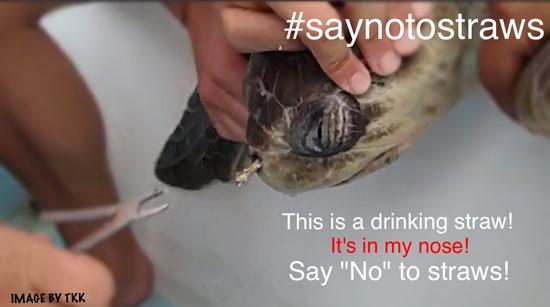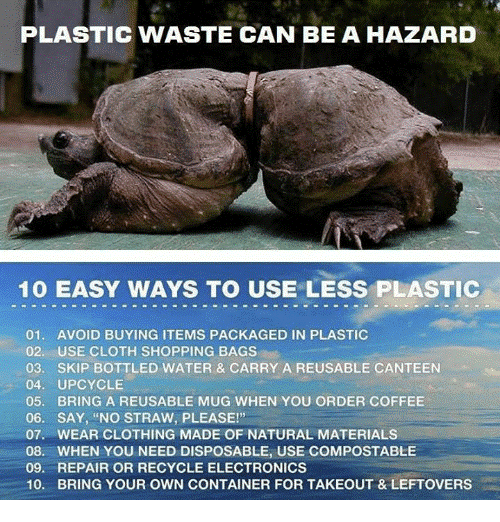Environment News
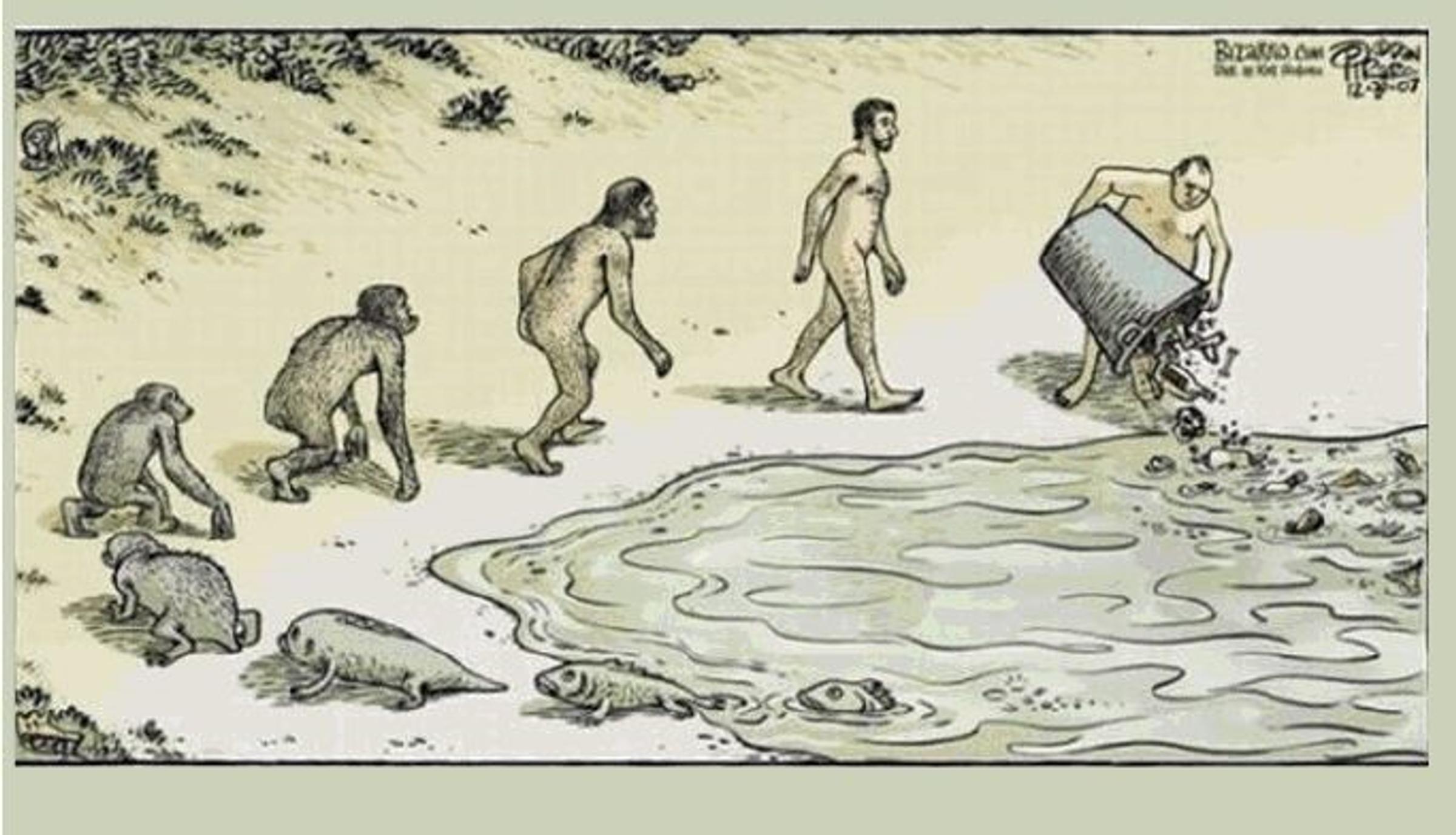
Ban the Fork- a review on our 2017 Plastic reduction campaign
On the 5th of June this year, the MGC Environment Team launched a campaign to celebrate World Environment Day 2017 that challenged our community to consider the environmental impact of their daily consumer choices. We did this by teaming up with Bocca (the School canteen) and IKEA to ban plastic cutlery on campus.
The campaign took off with an eye popping presentation to a whole school assembly involving MGC Biology teacher and Waste awareness officer, Mr. Clarke dressing up as a giant disposable coffee cup to literally reveal the inside plastic liner that renders the cup unrecyclable in standard recycle bins. This entertaining yet informative skit reinforced the facts outlined by the ABC series #WarOnWasteAU that Australia has a long way to go in terms of reducing our waste, increasing our recycling rates, reviving our reusing culture and ultimately, reducing our consumption all together.
Before the campaign started, it was not uncommon for MGC to ship 200 plastic forks and 100 plastic spoons to landfill daily. The ban the fork campaign encouraged staff and students to BYO their fork or to hire a metal fork (donated by IKEA) for a refundable fee of $1. The campaign has certainly reduced the number of plastic forks consumed and exists to this day, but it continues to be a challenge for many members of our community. Some people do not value the $1 hire fee highly enough to return the fork and we find several forks in our bins or littered across the school daily! Others find creative ways to use the hire fee as a sneaky way to make cash withdrawals at the canteen while a few individuals have liked the forks so much that they have stretched the definition of a “hire” in order to the supplement their own fork collections in their own school bags or kitchen drawers.
Despite the purchase of more than 500 additional forks and spoons, canteen staff are regularly running out of re-usable metal cutlery and forced to give out plastic cutlery to customers as not enough forks are being returned.
The importance of shifting away from single use cutlery is paramount. The facts are undeniable. Disposable plastics cause death of wildlife, pollute waterways and are beginning to show up in our food sources through processes of bioaccumulation where microplastics from litter can be passed up through the food chain and accumulate in animals that are consumed by humans. We have reached a point in society where we ARE LITERALLY EATING OUR NON-BIODEGRADABLE WASTE.
The production of plastic eating utensils for single use is an energy intensive, potentially socially unethical process (most utensils are manufactured in developing nations where emission standards are low or non-existent) and unsustainable. It is a convenient option for privileged consumers who have the knowledge and capacity to make better choices.
This term we will be trialling a new strategy to reduce single use plastic across the MGC community:
- Gold stars, high fives and looks of admiration will be awarded to all staff and students who remember to bring their own reusable forks and cups.
- The canteen will continue to offer the $1 metal fork hire scheme.
- A 15c disposable wooden fork will be available for customers who forget their own fork and cant afford the $1 hire.
- As a last resort, a plastic fork will be made available for people purchasing hot food, but consumers are encouraged to take it home and reuse.
We have learnt that a ban on plastic forks was not the right solution. For true behaviour change, people need to be presented with the facts and challenged to make an informed choice, rather than have a policy thrust upon them. One suggestion has been to put a single, reusable fork on the 2018 booklist for each student, however this is still being debated as to whether this is a practical or effective solution.
At MGC, we have a philosophy of building global citizens with critical thinking skills. I challenge all members of the MGC community to take a leading role on this war against waste… Have we really reached such a point of affluenza where it is more convenient to dig up fossilized remains of organisms from deep within the Earth’s crust, spend thousands of kilowatts of energy to refine the product, add colourants and UV stabilisers to ensure its longevity, mould it, shape it and package it, ship it across the globe, unpackage it and sell it to consumers to use once and then throw away rather than simply reusing a metal fork!?
…and while we’re at it MGC, stop sucking! If you are worried about too much sugar decaying your teeth, don’t buy sugary drinks. Give up plastic straws tomorrow and drink straight from the drink tap or reusable bottle!
Melbourne Water Kids Teaching Kids Conference
On Tuesday and Wednesday the 24th and 25th October, 10 MGC students attended the Melbourne Water Kids Teaching Kids Conference. The conference was held over two days and was attended by school groups from all over Australia as well as New Zealand. The first day was held at Melbourne University, we heard from many important guest speakers and went around in groups to partake in other schools' workshops. In the evening, we attended the Gala Dinner and saw some more special performances from other schools. The second day was held at Collingwood Children's Farm, and on this day a few selected schools and other organisations were chosen to present their own workshop, including MGC.
Over the past several months we had been working together as a team to create the workshop that we were lucky enough to present to other schools as part of the Environmental Project Day. Our workshop focused on the different types of renewable energy sources and aimed to educate and get people thinking about how Australia is generating power at the moment and how we can do this in more sustainable ways in the future.
Overall, being involved in the conference was an amazing experience for all of us. We learnt many new things and were able to see what other environmentally aware schools like ours are doing.
We had a great time and would encourage other students to participate next year. We would also really like to thank Mr. Vance and Ms. Hosking for all of their hard work, encouragement and enthusiasm throughout the process.
By Lilith Stewart
Year 9 Environment Rep

